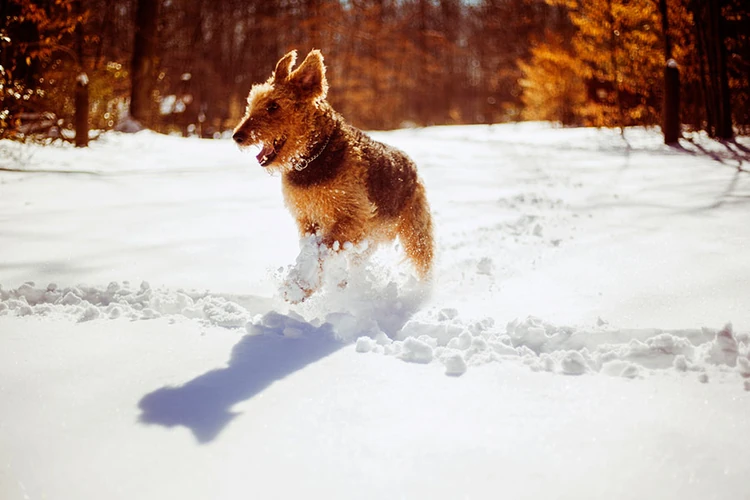While it’s important to pay close attention to your dog’s overall health year-round, a few extra precautions are necessary during the winter months.
Frostbite and hypothermia, cold-weather damage to paws, and excess weight gain are just a few ways harsh winter weather can cause moderate to severe problems for a dog’s health and well-being.
To keep your pet from packing on pounds or suffering other winter-related health complications, it’s critical to stay on track with their nutritional needs and maintain physical activity. Here are a few things you can do to keep your pooch safe, healthy, and warm during the colder months.
Winter health tips
Prevent problems. Preventative care can help you stay ahead of any health problems that could crop up during the winter months. Take your pet to the vet before winter weather sets in to work on setting winter weight and health care goals, as well as obtain recommendations for how to reach them.
Maintain physical activity. Exercise is an essential part of your dog’s mental and physical well-being – colder temperatures don’t have to put a halt on physical activity. Indoor exercise is one way to help your pet stay warm while meeting physical activity requirements. You can get your pet moving indoors by racing him up the stairs, setting up an obstacle course, or playing a game of indoor fetch.
Keep them warm. Remember that if it’s too cold for you, it’s too cold for them. Let pets come inside when it’s cold. Additionally, keep your dog comfortable and warm at night by setting up a warm place to sleep. A pet bed with a blanket or pillow will suffice, as long as it’s off the floor and away from drafts.
Prevent winter weight gain. Just like humans, pets can be prone to living a more sedentary life during the winter months. Keep your pet’s winter activity level in mind when considering how many calories your pet needs. Additionally, avoid giving your dog holiday table scraps or letting him indulge in too many treats.
Keep pets hydrated. Dogs can dehydrate just as quickly in winter as in summer. Be sure to provide a bowl of fresh water for your dog if they’ll be outside. To prevent your pup’s tongue from getting stuck to the bowl, use plastic instead of metal dishes.
Take care of paws. Cracked pads are common in pets during the winter months, and salt used to de-ice sidewalks can also cause issues. Keep your pets paws healthy by wiping down or washing their feet after a walk. If you notice discomfort, consider using dog booties or applying petroleum jelly to your pet’s paws before venturing out for a winter walk.
Reduce baths. Baths can strip your dog’s skin of important essential oils, so fully bathe your pooch as little as possible during cold weather. If a bath is necessary, use a moisturizing shampoo and/or rinse. To freshen your pet without using water, consider using dry shampoo.
